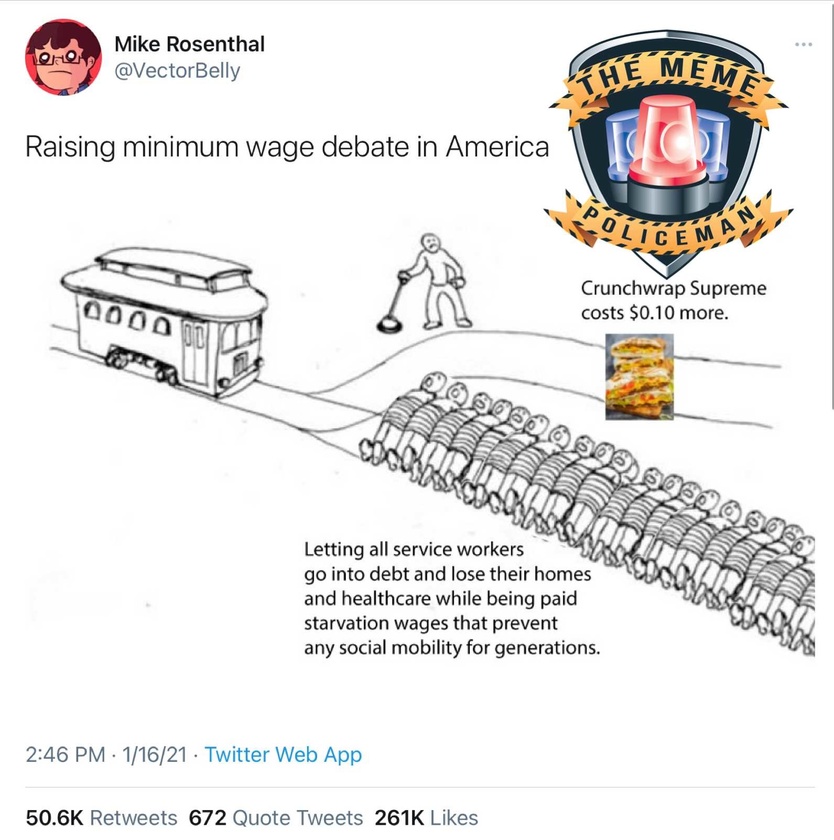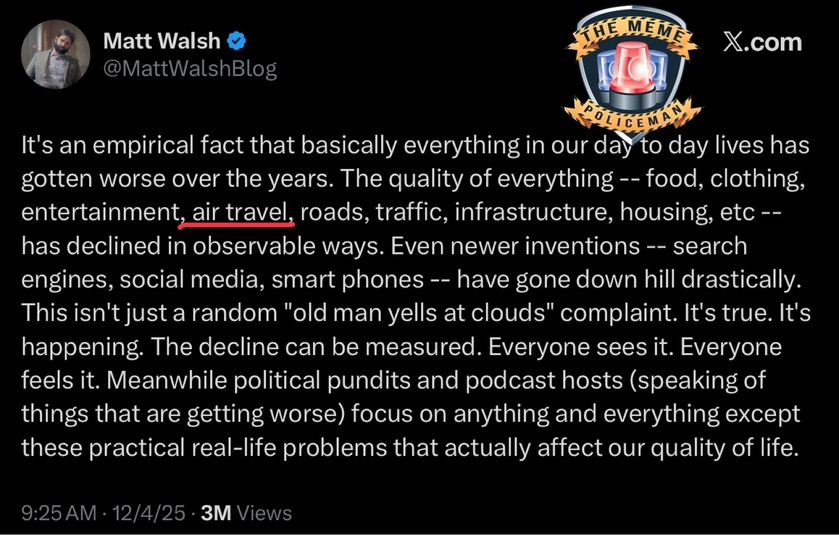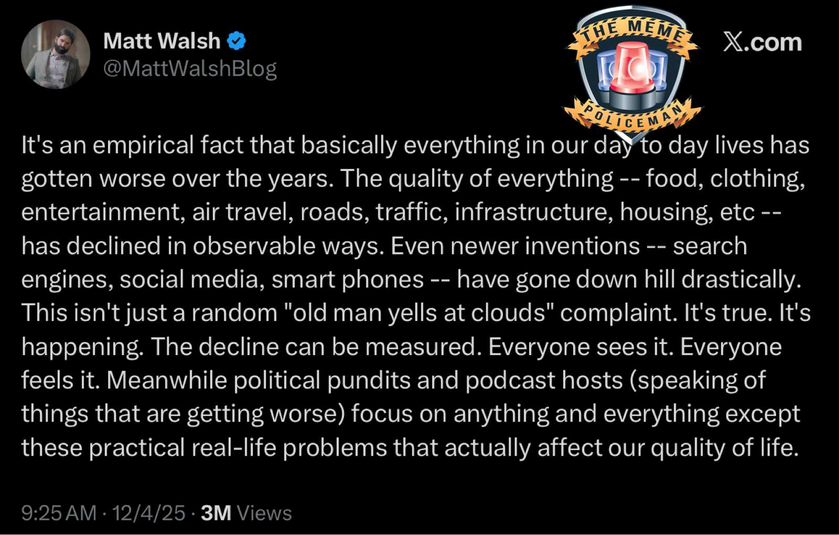This meme now has over 260K likes on Twitter. It’s clearly popular, but it’s not representative of the minimum wage debate, or at least it shouldn’t be. If the tradeoffs of a $15 min wage were simply paying slightly higher prices at Taco Bell to ensure millions could live comfortably, it would indeed be a silly debate. But there’s much more to it, here are some real arguments against the min wage.
▪️First, the argument from economics:
🔹Prices matter, and raising the price of something in a market has known effects. Higher prices, all else being equal, will reduce demand. This includes the price of labor. When the price of labor is raised, particularly artificially, it decreases demand. Decreased demand for labor translates to higher unemployment than there otherwise would be.
🔹No one knows the exact demand slope of unskilled labor, which is why we can’t know for the precise effect of imposing certain min wages, but demand curves always slope downward. The higher it’s raised, the more severe the effects. $50/hr would be much worse than $15/hr, but with any raise there’s still a harmful effect.
🔹To say that prices somehow don’t matter with labor, and can be arbitrarily raised without negative consequences, would be to turn economics on its head. Some proponents argue that higher wages would lead to more economic activity, and thus a net positive. But this is believing in something for nothing, not on any economic theory, and it’s unclear why the same principle wouldn’t apply with $50 or $100/hr.
▪️Next, the argument for helping the poor:
🔹Given that the demand curve slopes down, raising the minimum wage will first hurt the least skilled workers. Which tend to be youth entering the job market and other low skilled workers, i.e. the poor. Any workers that employers don’t view as having $15/hr worth of productivity are priced out of the market, and can’t start learning job skills and improving their resume. Many might never get to the first rung and be entrenched in poverty and unemployment. Raising the min wage is likely to harm many poor workers instead of help them.
🔹If the min wage is raised too high, it makes it difficult or impossible for the unskilled or downtrodden to compete. Think of a high school dropout vs. an art history grad competing for a restaurant job. At $15/hr the employer might not want to take a chance on the dropout, so will go with the history major. The one play the dropout might have is to lower their price of labor, which they can no longer do.
🔹Thus, raising the min wage always gives leverage to the higher skilled and credentialed, which is why labor unions generally support it. This can be seen in many cities which have high minimum wages and corresponding high youth unemployment.
▪️The argument from empiricism:
🔹Even though the Federal min wage hasn’t been raised since 2009, wages have steadily increased, while unemployment decreased. Avg hourly earnings rose from $22.41 in 2010, to $29.81 at the end of 2020. Avg. earnings of production and nonsupervisory employees (which excludes management) also rose substantially, from $18.88/hr to $25.09. Both rose every single year last decade.
🔹Meanwhile, the unemployment rate consistently fell over the last decade, with the exception of the post-COVID spike. Often, proponents will say that without the min wage employers would pay less and less. This simply isn’t true, as we’ve seen over the past decade. The min wage wasn’t changed, and wages consistently rose, along with employment.
🔹Another empirical reality is that almost no one earns the Federal min wage. Just 1.5% of part-time hourly workers make the min wage, and only 0.2% of full-time workers do. Which shows that employers can’t get away with paying it, as the market rate for unskilled labor is above that rate. In other words, the market (not the min wage) is what really sets the price of labor.
▪️The argument for individual rights:
🔹This argues the min wage is wrong because it makes it illegal for two voluntary parties to trade with each other. If a worker can’t find a job at $15/hr, but is willing to work for $13/hr, they are barred from making that trade. Which violates both the employer’s rights to hire who they want, and the employee’s rights to work for whom they want.
▪️For decades, the general sentiment among economists was that raising the minimum wage made no economic sense, and would likely cause harm. This was in mainstream textbooks. In 1987, there was a piece in the NYT arguing for zero min wage, showing this sentiment had broad mainstream intellectual appeal.
▪️Now, there seems to be widespread sentiment that we can get something for nothing, and raise the standard of living by decree. If so, this would be great news for countries like Bangladesh, who can simply rise out of poverty by instituting a $15 min/wage, but more likely this is a fantasy. Much like this meme.
https://fred.stlouisfed.org/series/CES0500000003
https://fred.stlouisfed.org/series/AHETPI
https://fred.stlouisfed.org/series/UNRATE
https://www.bls.gov/opub/reports/minimum-wage/2019/home.htm
https://www.nytimes.com/1987/01/14/opinion/the-right-minimum-wage-0.00.html

So many of these right wing accounts are just whiners now, this is a diatribe about automatic sinks and towels, the horror! As I explained in a prior post, most of the newer terminals have great bathrooms, some now have completely private stalls and plenty of them. The worst and most crowded airport bathrooms are invariably found in aging terminals that are decades old. It’s a reminder that airports were usually drab and uncomfortable.
I think the heyday of the air hand-dryers was like 15-20 years ago, where often you couldn’t find real towels. Now you can at least usually get real paper towels in airport bathrooms. Remember those old cloth roller towels that would go in a loop and somehow “clean” themselves? Yuck! Public bathrooms have always been gross, it seems some are deliberately having selective memories.
Airport food and drinks were always expensive, but now practically everyone brings those huge cooler flasks with them and fills them up. So not sure what he means that ...

I first critiqued this terrible take by looking at how food has actually improved substantially. Even though I said the same could be done in every category, people said “you’re only doing food.” So let’s do air travel and see why it’s not gotten better, not worse.
▪️Aircraft have greatly improved. Just 15-20 years ago, many domestic routes (~15%) were flown by turboprops like the Brasilia, Dash 8 or Saab. Now, almost everything is in jets, and most aircraft have WiFi. Some even have Starlink, where you probably have faster WiFi than your home. Most major airlines offer dozens or hundreds of movies and shows to watch.
▪️Newer designs like the 787 have lower cabin altitudes and improved humidity, which make a huge difference in passenger comfort on long haul flights. The first/business class international market has gotten very competitive globally, with many carriers offering excellent service and amenities. Pods, suites, showers, etc. Coach still sucks but is dramatically cheaper ...

This is the complete opposite of an empirical fact. The right has now joined the left in being pessimistic about the modern world and completely unappreciative of the amazing abundance we now have. I’ll just focus on food here, but you could do it for almost every category.
▪️Fresh produce used to be available only in season. In the winter it was canned or frozen. People used to send fruit for Christmas gifts, it was that much of a luxury good. Now, you can get giant, sweet berries year around in every grocery store. Corn on the cob in February. Not to mention once rare items like dragon fruit, heirloom tomatoes or baby bok choy.
▪️If you didn’t live on the coast, seafood was either not available, frozen, or extremely expensive. If you lived in the Midwest and traveled to coastal locales you would quite literally be able to eat food you had never seen. Salmon has become much more abundant and accessible. You can get fresh ahi at Walmart today. Sushi and oyster bars exist everywhere ...













